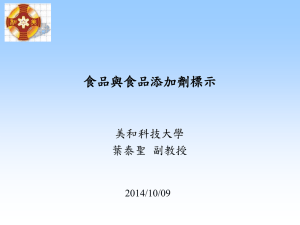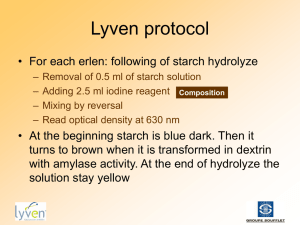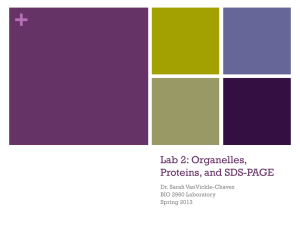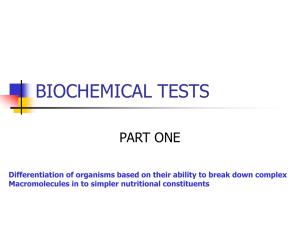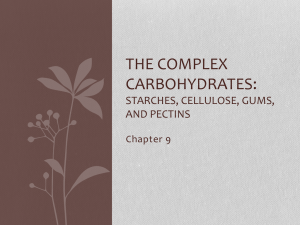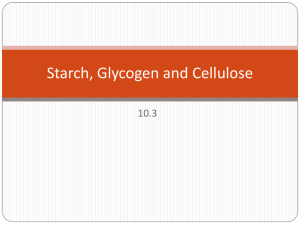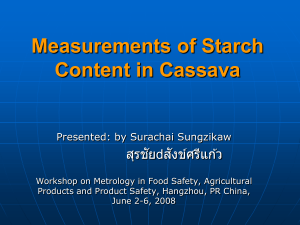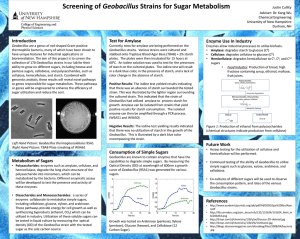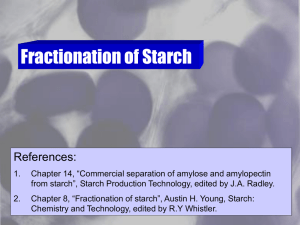Your Title Here
advertisement
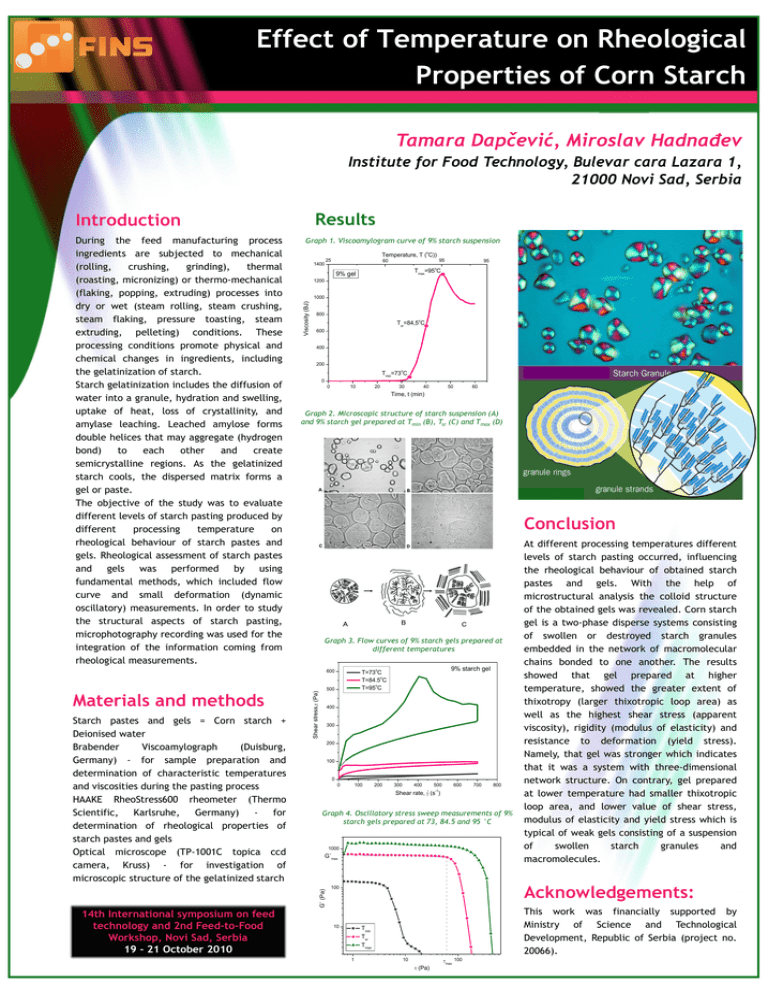
Effect of Temperature on Rheological Properties of Corn Starch Tamara Dapčević, Miroslav Hadnađev Institute for Food Technology, Bulevar cara Lazara 1, 21000 Novi Sad, Serbia Results Introduction Graph 1. Viscoamylogram curve of 9% starch suspension o Temperature, T ( C)) 25 1400 1200 1000 800 o Tsr=84,5 C 600 400 200 o Tmin=73 C 0 0 10 30 40 50 60 Graph 2. Microscopic structure of starch suspension (A) and 9% starch gel prepared at Tmin (B), Tsr (C) and Tmax (D) Conclusion Graph 3. Flow curves of 9% starch gels prepared at different temperatures 9% starch gel o T=73 C o T=84.5 C o T=95 C 500 400 300 200 100 0 0 100 200 300 400 . 500 600 700 800 -1 Shear rate, (s ) Graph 4. Oscillatory stress sweep measurements of 9% starch gels prepared at 73, 84.5 and 95 °C 1000 G´max G` (Pa) 14th International symposium on feed technology and 2nd Feed-to-Food Workshop, Novi Sad, Serbia 19 - 21 October 2010 20 Time, t (min) Shear stress, (Pa) Starch pastes and gels = Corn starch + Deionised water Brabender Viscoamylograph (Duisburg, Germany) - for sample preparation and determination of characteristic temperatures and viscosities during the pasting process HAAKE RheoStress600 rheometer (Thermo Scientific, Karlsruhe, Germany) for determination of rheological properties of starch pastes and gels Optical microscope (TP-1001C topica ccd camera, Kruss) - for investigation of microscopic structure of the gelatinized starch 95 Tmax=95 C 9% gel 600 Materials and methods 95 60 o Viscosity (BJ) During the feed manufacturing process ingredients are subjected to mechanical (rolling, crushing, grinding), thermal (roasting, micronizing) or thermo-mechanical (flaking, popping, extruding) processes into dry or wet (steam rolling, steam crushing, steam flaking, pressure toasting, steam extruding, pelleting) conditions. These processing conditions promote physical and chemical changes in ingredients, including the gelatinization of starch. Starch gelatinization includes the diffusion of water into a granule, hydration and swelling, uptake of heat, loss of crystallinity, and amylase leaching. Leached amylose forms double helices that may aggregate (hydrogen bond) to each other and create semicrystalline regions. As the gelatinized starch cools, the dispersed matrix forms a gel or paste. The objective of the study was to evaluate different levels of starch pasting produced by different processing temperature on rheological behaviour of starch pastes and gels. Rheological assessment of starch pastes and gels was performed by using fundamental methods, which included flow curve and small deformation (dynamic oscillatory) measurements. In order to study the structural aspects of starch pasting, microphotography recording was used for the integration of the information coming from rheological measurements. At different processing temperatures different levels of starch pasting occurred, influencing the rheological behaviour of obtained starch pastes and gels. With the help of microstructural analysis the colloid structure of the obtained gels was revealed. Corn starch gel is a two-phase disperse systems consisting of swollen or destroyed starch granules embedded in the network of macromolecular chains bonded to one another. The results showed that gel prepared at higher temperature, showed the greater extent of thixotropy (larger thixotropic loop area) as well as the highest shear stress (apparent viscosity), rigidity (modulus of elasticity) and resistance to deformation (yield stress). Namely, that gel was stronger which indicates that it was a system with three-dimensional network structure. On contrary, gel prepared at lower temperature had smaller thixotropic loop area, and lower value of shear stress, modulus of elasticity and yield stress which is typical of weak gels consisting of a suspension of swollen starch granules and macromolecules. Acknowledgements: 100 10 This work was financially supported by Ministry of Science and Technological Development, Republic of Serbia (project no. 20066). Tmin Tsr Tmax 1 10 (Pa) max 100



